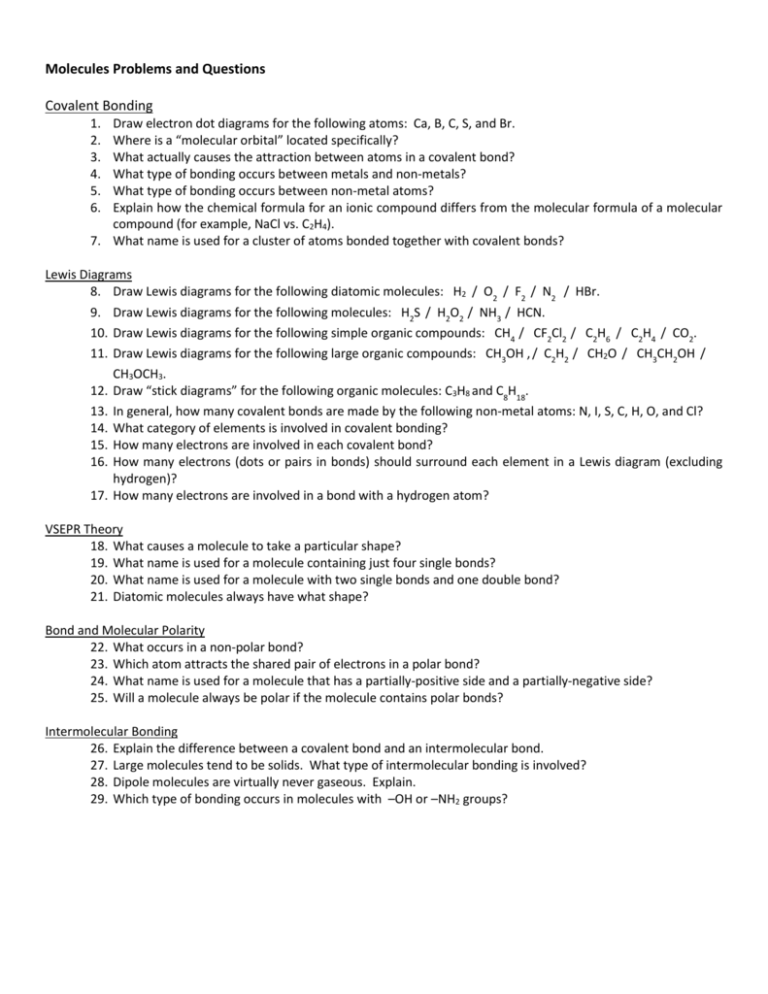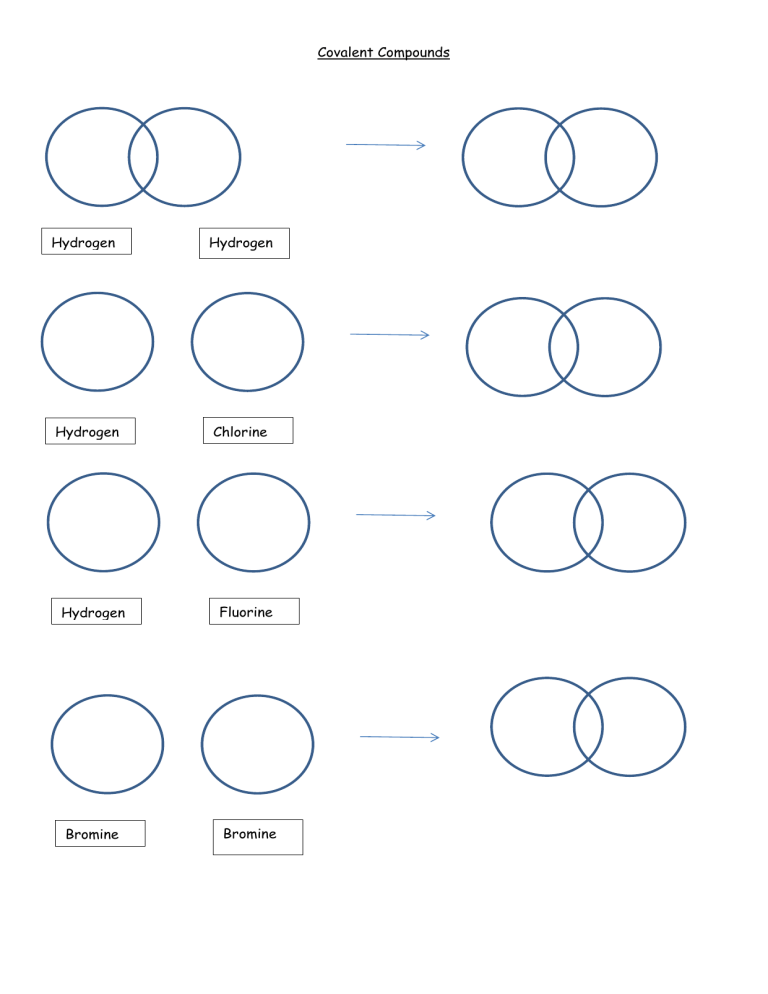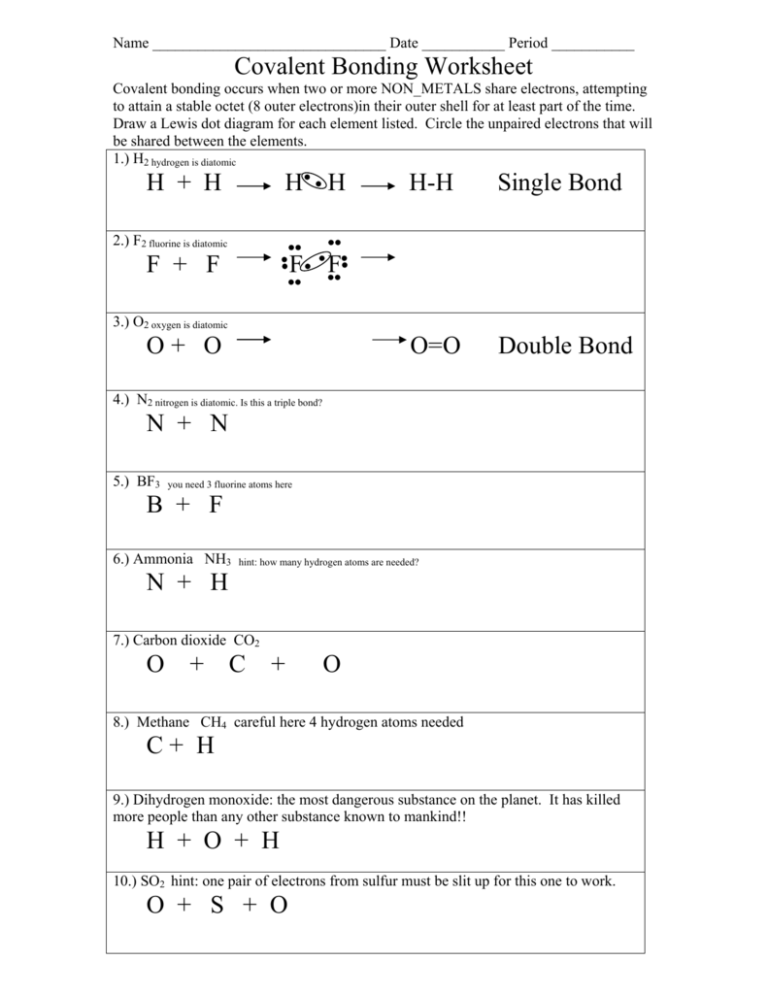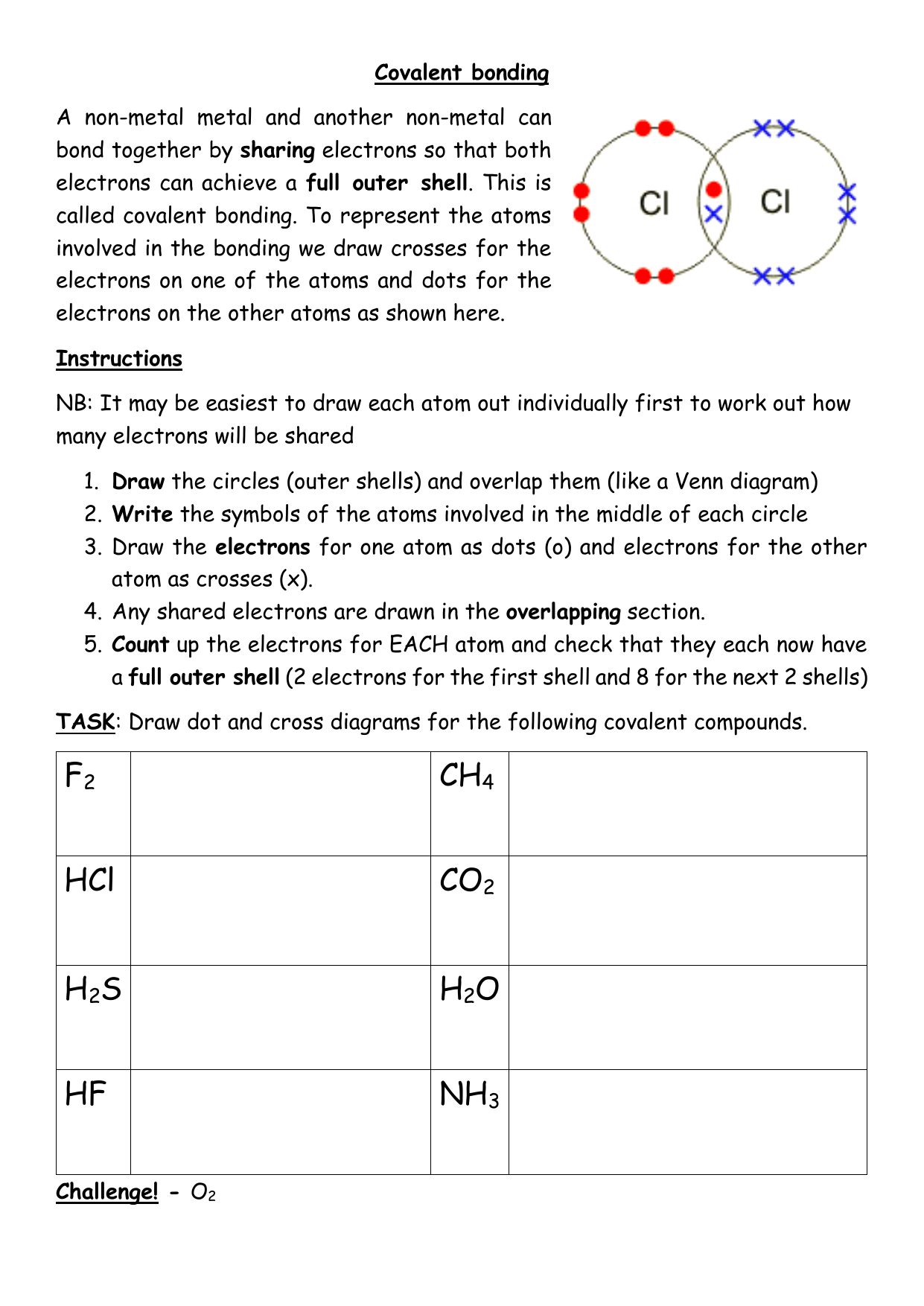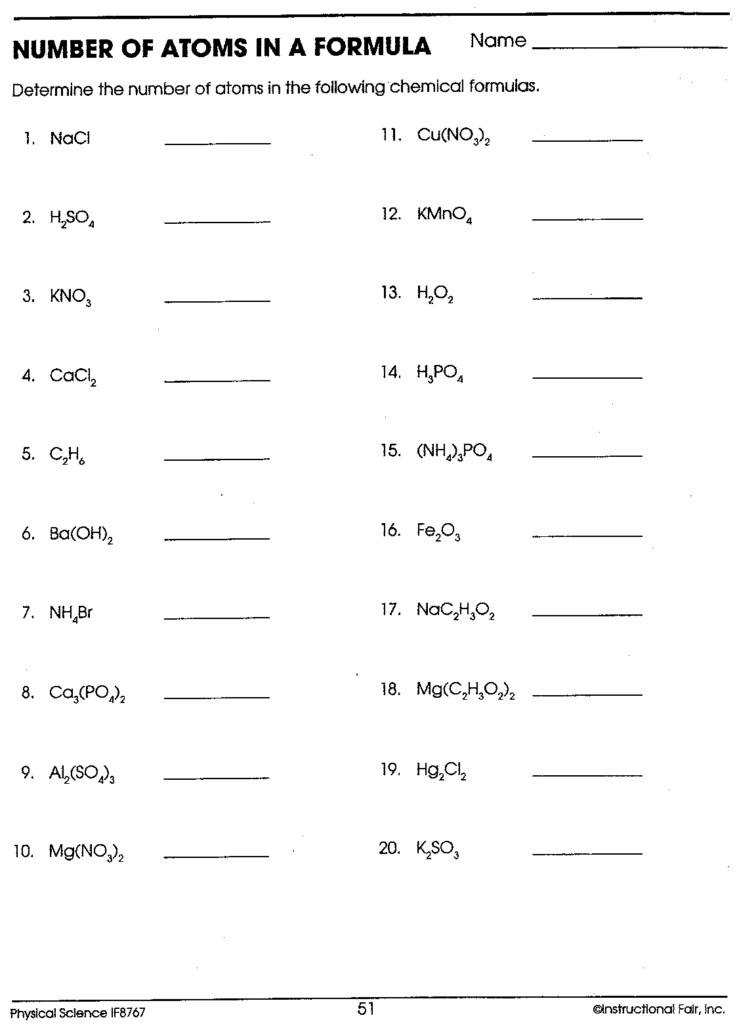Drawing Covalent Bonds Worksheet - When atoms of nonmetals bond to each other they share valence electrons and form a covalent bond. Draw the molecular structure of water and label the partial charges of each element. Model 1 substances are called ionic compounds and model 2 substances are called covalent molecules. Write a simple rule that will allow. When atoms bond they usually have to. Why is the water molecule’s shape bent and not linear?
When atoms bond they usually have to. Draw the molecular structure of water and label the partial charges of each element. When atoms of nonmetals bond to each other they share valence electrons and form a covalent bond. Write a simple rule that will allow. Model 1 substances are called ionic compounds and model 2 substances are called covalent molecules. Why is the water molecule’s shape bent and not linear?
Write a simple rule that will allow. Why is the water molecule’s shape bent and not linear? Draw the molecular structure of water and label the partial charges of each element. When atoms of nonmetals bond to each other they share valence electrons and form a covalent bond. Model 1 substances are called ionic compounds and model 2 substances are called covalent molecules. When atoms bond they usually have to.
Covalent Bonding Worksheet
When atoms bond they usually have to. When atoms of nonmetals bond to each other they share valence electrons and form a covalent bond. Model 1 substances are called ionic compounds and model 2 substances are called covalent molecules. Write a simple rule that will allow. Why is the water molecule’s shape bent and not linear?
Covalent Bonding Activity Worksheet
Why is the water molecule’s shape bent and not linear? Write a simple rule that will allow. When atoms bond they usually have to. When atoms of nonmetals bond to each other they share valence electrons and form a covalent bond. Draw the molecular structure of water and label the partial charges of each element.
Practice Drawing Covalent Bonds
Model 1 substances are called ionic compounds and model 2 substances are called covalent molecules. When atoms bond they usually have to. Write a simple rule that will allow. Draw the molecular structure of water and label the partial charges of each element. Why is the water molecule’s shape bent and not linear?
Ionic & Covalent Bond Lewis or Electron Dot Diagrams Part 1 FREE Made
When atoms bond they usually have to. Draw the molecular structure of water and label the partial charges of each element. Model 1 substances are called ionic compounds and model 2 substances are called covalent molecules. When atoms of nonmetals bond to each other they share valence electrons and form a covalent bond. Why is the water molecule’s shape bent.
covalent bond worksheet (2)
Model 1 substances are called ionic compounds and model 2 substances are called covalent molecules. When atoms of nonmetals bond to each other they share valence electrons and form a covalent bond. When atoms bond they usually have to. Why is the water molecule’s shape bent and not linear? Draw the molecular structure of water and label the partial charges.
Covalent Bonding Worksheet
When atoms bond they usually have to. Draw the molecular structure of water and label the partial charges of each element. When atoms of nonmetals bond to each other they share valence electrons and form a covalent bond. Model 1 substances are called ionic compounds and model 2 substances are called covalent molecules. Why is the water molecule’s shape bent.
Drawing Covalent Compounds Worksheet Printable Kids Entertainment
Why is the water molecule’s shape bent and not linear? Model 1 substances are called ionic compounds and model 2 substances are called covalent molecules. Draw the molecular structure of water and label the partial charges of each element. When atoms bond they usually have to. When atoms of nonmetals bond to each other they share valence electrons and form.
Drawing dot and cross covalent bonding diagrams
Why is the water molecule’s shape bent and not linear? When atoms bond they usually have to. Model 1 substances are called ionic compounds and model 2 substances are called covalent molecules. Draw the molecular structure of water and label the partial charges of each element. When atoms of nonmetals bond to each other they share valence electrons and form.
Free Printable Covalent Bonding Worksheets
Why is the water molecule’s shape bent and not linear? When atoms bond they usually have to. When atoms of nonmetals bond to each other they share valence electrons and form a covalent bond. Draw the molecular structure of water and label the partial charges of each element. Write a simple rule that will allow.
Covalent Bonding Practice Worksheet Answers Worksheet Now
Write a simple rule that will allow. Model 1 substances are called ionic compounds and model 2 substances are called covalent molecules. Draw the molecular structure of water and label the partial charges of each element. When atoms of nonmetals bond to each other they share valence electrons and form a covalent bond. When atoms bond they usually have to.
When Atoms Of Nonmetals Bond To Each Other They Share Valence Electrons And Form A Covalent Bond.
Model 1 substances are called ionic compounds and model 2 substances are called covalent molecules. When atoms bond they usually have to. Why is the water molecule’s shape bent and not linear? Write a simple rule that will allow.
